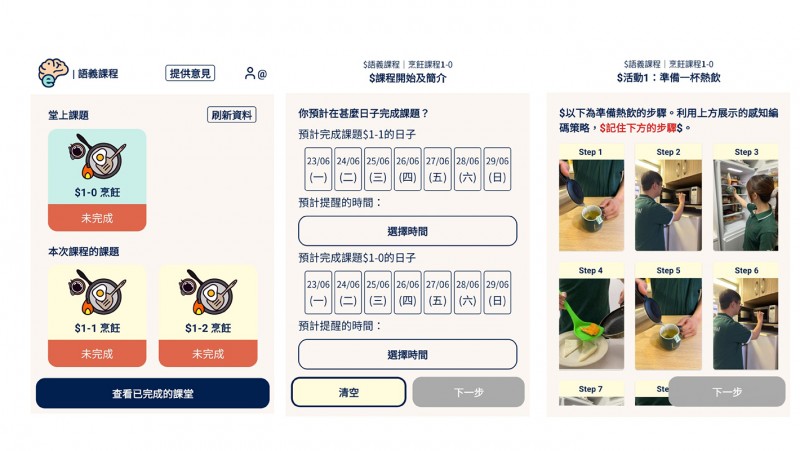Empowering early cognitive care with innovative mobile memory encoding app
As dementia cases rise globally, finding effective early interventions to slow cognitive decline has become a pressing priority for healthcare researchers. Addressing this challenge, PolyU has developed an innovative mobile application-based cognitive remediation programme called Enhancing Memory in Daily Life (E-MinD Life), designed to support individuals experiencing memory complaints, mild cognitive impairment (MCI), and mild dementia.
The urgency of this solution prompted Professor Karen Liu from PolyU’s Department of Rehabilitation Sciences to collaborate with Dr Nikki Tulliani, Associate Lecturer at Western Sydney University, in developing E-MinD Life. This programme is built on the principle of semantic and perceptual memory encoding, and innovatively integrates cognitive remediation into daily activities as an early intervention.
Cognitive decline, particularly in memory function, progressively impairs a person’s ability to manage daily tasks independently. MCI, often a precursor to dementia, primarily affects the encoding stage of memory when new information is first registered. It can also signal early neuropathological changes years before a dementia diagnosis. Timely intervention targeting this phase is critical to delay functional deterioration and maintain quality of life.
E-MinD Life is a nine-week programme, blending therapist guidance with self-led sessions, that applies memory encoding strategies to everyday activities. The programme leverages two main types of memory encoding – semantic and perceptual – to enhance cognitive functioning through practical tasks.
Key features of E-MinD Life include:
Feature | Description |
Mobile application | User-friendly app that tailors the programme to individual needs and provides real-time feedback. |
Programme duration | Nine Weeks |
Session structure | Three 60-minute sessions per week: one therapist-led meeting and two self-administered sessions. |
Target group | Individuals with mild cognitive impairment (MCI). |
Cognitive engagement | Engages participants in structured tasks to foster cognitive engagement and practical learning. |
Focus Areas | Instrumental activities of daily living (IADLs), which include:
|
Session structure | Three 60-minute sessions per week: one therapist-led meeting and two self-administered sessions. |
Learning enhancement | Organises aspects like person, place, time, and object; establishes connections between concepts. |
Encoding techniques |
|
Community impact | Extends cognitive remediation programmes beyond professional-led training to reach larger populations. |
This user-friendly mobile app represents a promising, cost-effective approach to cognitive remediation that empowers older adults to maintain independence despite early cognitive challenges. By embedding memory training into daily life activities, the programme fosters greater memory awareness and practical skill development. A pilot study in Australia reported positive feedback on usability and effectiveness, bolstering confidence in its wider application. With a Chinese version currently under development, PolyU aspires to bring this valuable early intervention directly to Hong Kong’s ageing community, marking a significant advancement in dementia care and prevention strategies.

Professor Karen Liu from the Department of Rehabilitation Sciences emphasised that non-pharmacological treatments are essential for alleviating the decline in memory and cognitive abilities through effective preventive and early intervention measures. This initiative focuses on leveraging memory encoding to facilitate cognitive remediation.

The Chinese version of E-MinD Life is currently being developed for trial use in Hong Kong. The picture shows the simulated user interface of E-MinD Life.






